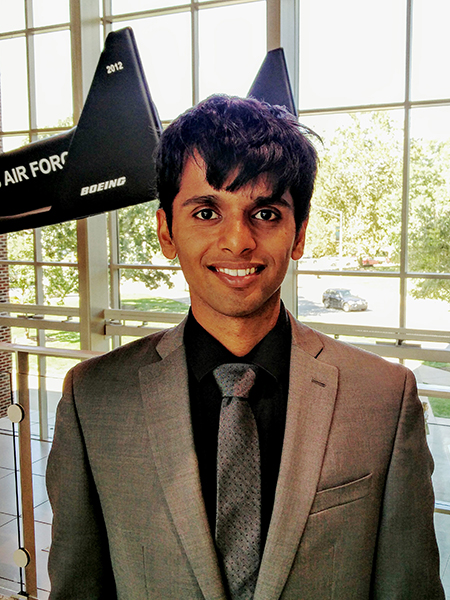AAE student Jain earns FAA Center of Excellence fellowship

Since May 22, AAE Ph.D student Utsav Jain has been working in the Fuels and Energy Division at the Federal Aviation Administration’s William J. Hughes Technical Center in Atlantic City, N.J.
Jain earned the opportunity by being selected by the Aviation Research Division of the FAA for its Center of Excellence (COE) Summer Experience program. The COE program operates as one of the projects of the Partnership to Enhance General Aviation Safety Accessibility and Sustainability (PEGASAS), the FAA’s Center of Excellence for General Aviation.
Jain was one of four Purdue students selected for the fellowship. He is pursuing research in computational modeling of turbulent combustion with Haifeng Wang, an assistant professor in Purdue’s School of Aeronautics and Astronautics.
“It was a big honor to receive an opportunity to work at the Federal Aviation Administration,” says Jain, whose FAA manager is Dave Atwood. “FAA has been a pioneer in aviation research and development, and the PEGASAS program is an excellent platform to enhance the research collaboration between partner university and the industry.
“It feels very special to be a part of this, and I am very optimistic about the future research collaborations between FAA and the Purdue AAE department.”
As part of his fellowship, Jain has been involved in studying different detonation methods that can be used to study knocking of fuels in general aviation piston engines.
“The experience has been great,” Jain says. “Combustion is a very complex phenomenon and we, as humans, have a very limited grasp of the physics behind it. With new and different types of aviation fuels coming in the market, there is a general need to have an abstract understanding of detonations in general aviation piston engines.”
The fellowship ends Aug. 3.
